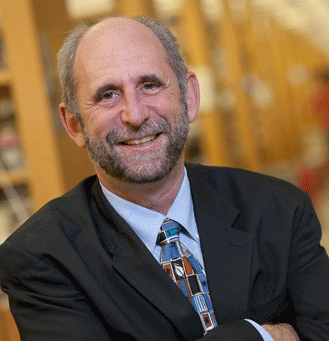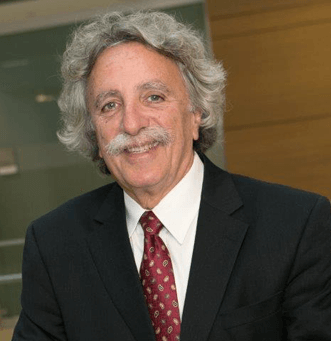Michael Green and Allan Jacobson elected to American Academy of Arts and Sciences
Date Posted: April 18, 2018 |
|
|
Michael Green, MD, PhD |
|
 |
|
|
Allan Jacobson, PhD |
Two distinguished scientists from UMass Chan Medical School—Michael Green, MD, PhD, and Allan Jacobson, PhD—have been elected to the American Academy of Arts and Sciences Class of 2018, which comprises 213 individuals in a wide range of disciplines and professions. Founded in 1780, the academy honors exceptional scholars, leaders, artists and innovators and engages them in sharing knowledge and addressing challenges facing the world.
“Membership in the academy is not only an honor, but also an opportunity and a responsibility,” saidJonathan Fanton, president of the American Academy. “Members can be inspired and engaged by connecting with one another and through academy projects dedicated to the common good. The intellect, creativity and commitment of the 2018 class will enrich the work of the academy and the world in which we live.”
The academy’s projects and publications generate ideas and offer recommendations to advance the public good in the arts, citizenship, education, energy, government, the humanities, international relations, science and more.
Dr. Green is a Howard Hughes Medical Institute investigator, the Lambi and Sarah Adams Chair of Genetic Research, chair and professor of molecular, cell & cancer biology, director of the UMass Chan Medical School Cancer Center and co-director of the Li Weibo Institute for Rare Diseases Research.
He studies the mechanisms that regulate gene expression in eukaryotes and the role of gene expression in various human disease states. He also uses transcription-based approaches and functional screens to identify new genes and regulatory pathways involved in cancer. These studies are intended to enhance understanding of how normal cells become cancerous and to reveal potential new targets for therapeutic intervention. Green, a highly cited author, has discovered fundamental insights into the fields of transcriptional regulation and splicing.
Green has been the recipient of the Searle Scholar Award, the Presidential Young Investigators Award and the McKnight Neuroscience Award. He is a member of the National Academy of Medicine, the National Academy of Sciences and is an associate member of the European Molecular Biology Organization.
Dr. Jacobson is the Gerald L. Haidak, MD, and Zelda S. Haidak professor of cell biology, and chair and professor of microbiology & physiological systems. Jacobson’s lab studies the post-transcriptional control of gene expression, focusing on the consequences and corrections of “nonsense mutations”—errors in the genetic code that serve as periods in a genetic sentence. Nonsense mutations are the underlying cause of numerous inherited diseases such as cystic fibrosis and hemophilia. A company co-founded by Jacobson, PTC Therapeutics, developed a translation termination readthrough drug as therapy for genetic disorders caused by nonsense mutations. That drug, (ataluren/Translarna), received European Medicines Agency approval as a first-in-class medicine for the treatment of nonsense-mediated Duchenne muscular dystrophy and is now being used by patients in more than 25 countries.
Jacobson has received numerous awards, including the American Cancer Society’s Faculty Research Award and a National Institutes of Health MERIT Award. He is a member of the American Academy of Microbiology.
Green and Jacobson join fellow UMMS researchers Victor Ambros, PhD, the Silverman Chair in Natural Sciences and professor of molecular medicine, and Nobel Laureate Craig C. Mello, PhD, Howard Hughes Medical Institute Investigator, the Blais University Chair in Molecular Medicine and distinguished professor of molecular medicine & cell biology, at the academy.
The new class will be inducted at a ceremony in October in Cambridge at which the newly elected members will sign the Book of Members, and their signatures will be added to the Academy members who came before them, including Benjamin Franklin (1781) and Alexander Hamilton (elected 1791) in the eighteenth century; Ralph Waldo Emerson, (1864), Maria Mitchell (1848), and Charles Darwin (1874) in the nineteenth; and Albert Einstein (1924), Robert Frost (1931), Margaret Mead (1948), Milton Friedman (1959), and Martin Luther King Jr. (1966) in the twentieth.
The new members of the academy were elected in 25 categories and are affiliated with 125 institutions. The 2018 class includes author Ta-Nehisi Coates; artist and scholar David C. Driskell; Lincoln Center for the Performing Arts Chair Katherine G. Farley; philosopher Robert Gooding-Williams; actor Tom Hanks; Netflix, Inc. CEO W. Reed Hastings Jr.; Librarian of Congress Carla D. Hayden; Lockheed Martin Corporation CEO Marillyn A. Hewson; historian Evelyn Brooks Higginbotham; computational linguist Julia B. Hirschberg; economist Hilary Hoynes; Buddhist scholar Matthew T. Kapstein; indigenous studies scholar K. Tsianina Lomawaima; novelist Viet Thanh Nguyen; 44th President of the United States Barack H. Obama; NASA climatologist Claire L. Parkinson; physicist David J. Pine, philanthropist and entrepreneur Laurene Powell Jobs; Supreme Court Justice Sonia M. Sotomayor; sculptor and installation artist Jessica Stockholder; gene editing developer Feng Zhang; and pediatric neurologist Huda Y. Zoghbi.